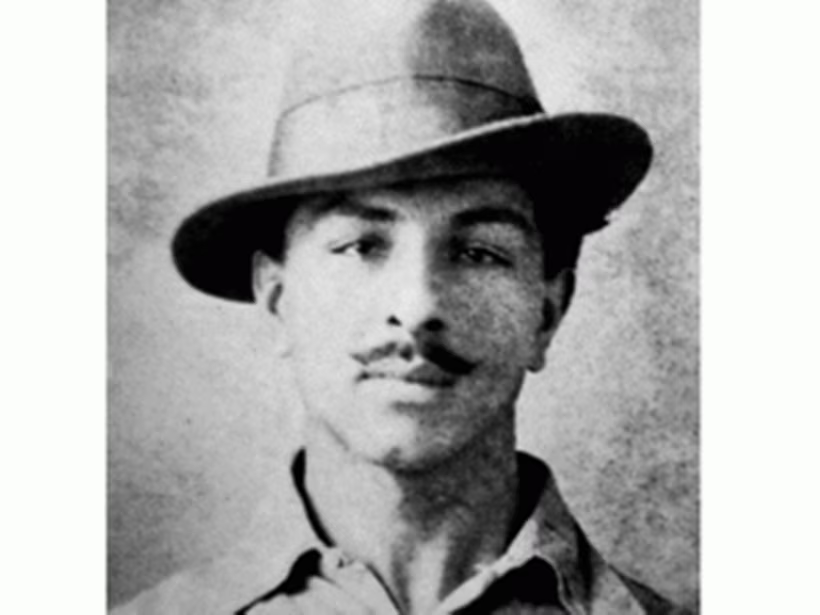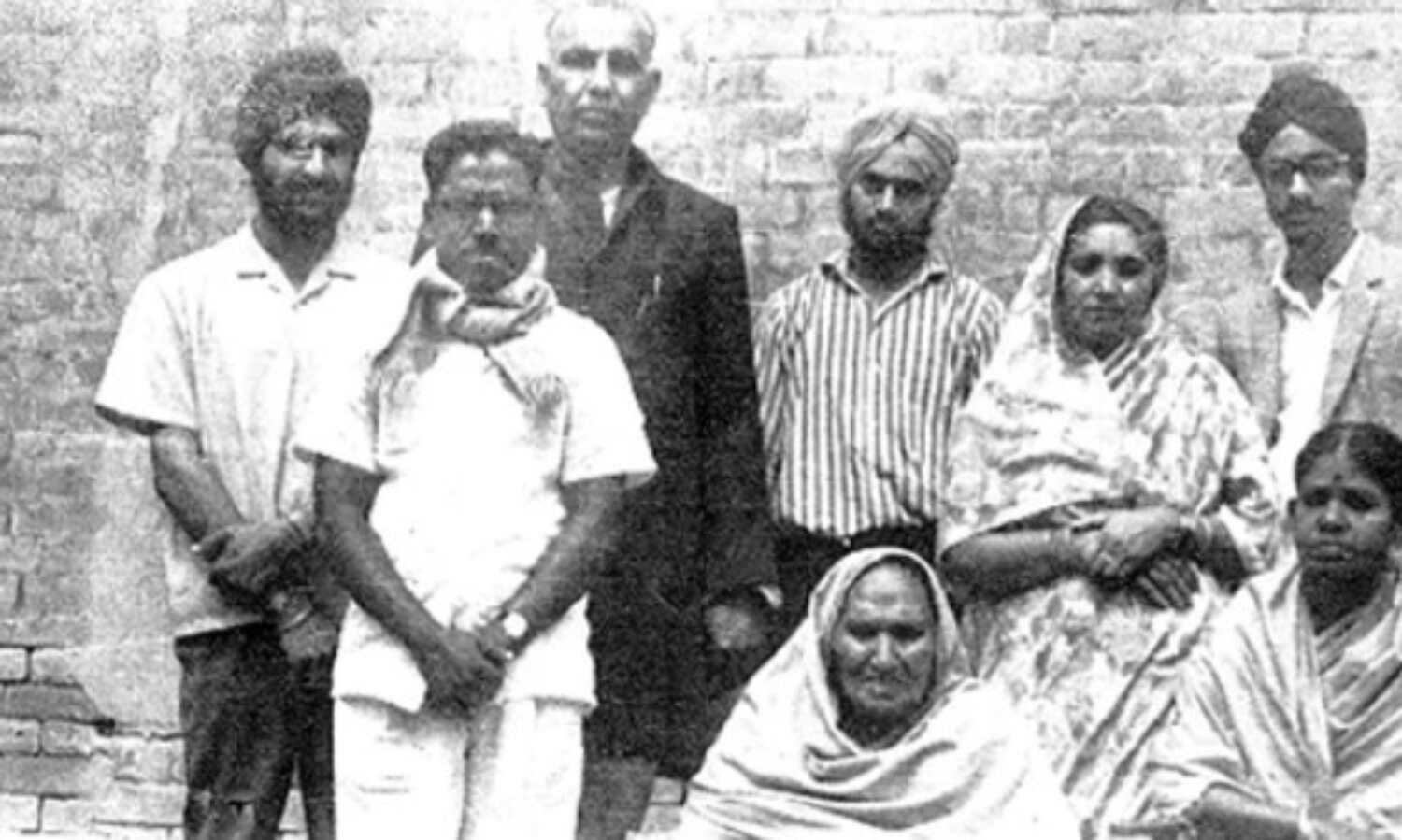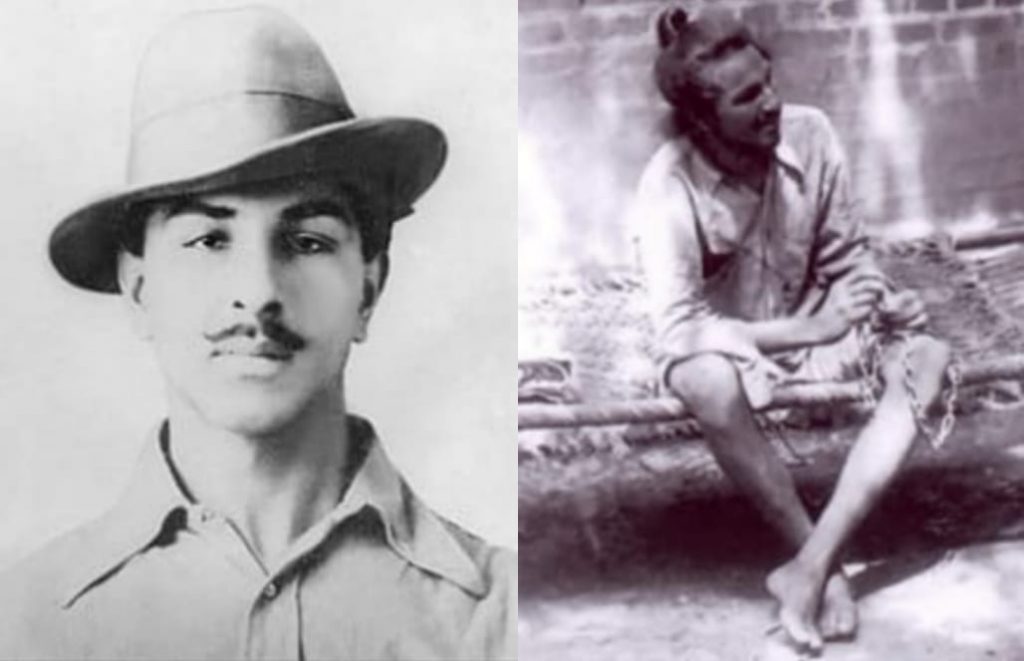Bhagat Singh Biography: Explore the life of Shaheed-E-Azam Bhagat Singh, India’s iconic revolutionary. Born on 28 Sept 1907, his courage, ideologies, and sacrifice made him a national hero. On his 118th birth anniversary in 2025, we honor his legacy of freedom, justice, and patriotism.

Bhagat Singh Biography: Bhagat Singh, an iconic figure in India’s fight for independence, was a prominent revolutionary and nationalist. Born on September 28, 1907, in a small village in Punjab, his dedication to the cause of freedom and his unwavering spirit made him a symbol of courage and patriotism. This article delves into the life and legacy of Bhagat Singh, highlighting his revolutionary activities, his ideologies, and his legacy.
The 118th birth anniversary of Bhagat Singh will be observed on 28th September 2025. He was a legendary revolutionary whose spirit continues to inspire generations in India. Born on 28th September 1907 in a petty-bourgeois Sandhu Jat family settled in the Jullundur Doab district of Punjab, Bhagat Singh rose to prominence through acts of defiance against colonial rule. He gained national attention with the bombing of the Central Legislative Assembly in 1929, an act of protest against oppressive laws that was carried out without the intent to cause casualties. His writings and ideas inspired the youth to fight for justice and equality. His execution at the young age of 23 made him a martyr, symbolising the spirit of sacrifice for India’s freedom.
| Bhagat Singh Birth Anniversary 2025 | |
|---|---|
| Fact | Details |
| Full Name | Bhagat Singh |
| Date of Birth | 28 September 1907 |
| Date of Death | 23 March 1931 |
| Place of Death | Lahore Central Jail |
| Age as of 2025 | 118 years |
| Legacy | National hero, youth icon, symbol of courage and sacrifice |

He was born on September 28, 1907, in a small village called Banga in the Lyallpur district of Punjab, which is now in Pakistan. He was born into a family that had a rich history of revolutionary activities against British colonial rule in India. From a young age, he was influenced by his father and uncles, who were actively involved in the freedom struggle. He grew up with a strong sense of patriotism and a desire to see India free from British oppression. Bhagat Singh went on to become one of the most prominent revolutionaries in the Indian independence movement, known for his courage, dedication, and sacrifice.
|
Shaheed Bhagat Singh Biography Highlights |
|
| Category | Details |
| Full Name | Bhagat Singh |
| Born | September 28, 1907, in Banga, Punjab (now in Pakistan) |
| Education | Dayanand Anglo Vedic High School, National College (Lahore) |
| Shaheed Bhagat Singh Father’s name | Kishan Singh |
| Influence | Inspired by revolutionary ideas, Marxist theories, and the Indian independence movement |
| Early Activism | Protested British rule while still in school, joined revolutionary groups for India’s independence |
| Key Contributions | Popularized the slogan “Inquilab Zindabad” (“Long live the revolution”) |
| Major Incidents | 1928: Plot to avenge Lala Lajpat Rai’s death, mistakenly killed J.P. Saunders |
| Bombing Incident | 1929: Threw a bomb in the Central Legislative Assembly in Delhi to protest the Defence of India Act |
| Arrest & Execution | Arrested after the bombing and sentenced to death; hanged on March 23, 1931, at the age of 23 |
| Legacy | Revered as a martyr (Shaheed) and a national hero in India’s struggle for independence |
Regarding Bhagat Singh’s family, his father’s name was Kishan Singh, and his mother’s name was Vidyavati. He came from a Sikh family that had a history of active participation in political and social movements. Bhagat Singh had two younger brothers, Kulbir Singh and Rajinder Singh.
Bhagat Singh’s family members have played a significant role in preserving his legacy and keeping his ideals alive. They have actively participated in events and activities commemorating Bhagat Singh’s sacrifice and contributions to India’s freedom struggle.

Shaheed Bhagat Singh is one of the most celebrated freedom fighters in India’s struggle for independence. Known for his fearless attitude and revolutionary ideas, he became a symbol of resistance against British colonialism. His life, though tragically short, left an indelible mark on the history of India’s fight for freedom. Below is a table highlighting some interesting facts about Bhagat Singh.
| Fact | Details |
| Birth Anniversary | September 28, celebrated as Shaheed Bhagat Singh Jayanti |
| Age at Execution | 23 years old |
| Famous Slogan | “Inquilab Zindabad” (Long live the revolution) |
| Influences | Influenced by Karl Marx, Vladimir Lenin, and anarchist literature |
| Family Background | Came from a family of revolutionaries involved in India’s freedom movement |
| Lala Lajpat Rai Incident | Bhagat Singh sought to avenge the death of Lala Lajpat Rai, a prominent leader who died after a police baton charge |
| Role in Hindustan Socialist Republican Association (HSRA) | Active member and leader of HSRA |
| Books Written/Read in Jail | Bhagat Singh was known to have written extensively and read about revolutionary literature while in jail |
| Execution Date | March 23, 1931, remembered as Shaheed Diwas or Martyrs’ Day in India |
Raised in a politically active family, Bhagat Singh was exposed to nationalist ideas from an early age. His father, Kishan Singh, was a committed freedom fighter who played a significant role in shaping young Bhagat’s ideology. Moreover, the Jallianwala Bagh massacre, an indiscriminate act of violence against peaceful protesters by British forces, deeply impacted Bhagat Singh’s beliefs. Witnessing this atrocity fueled his desire to fight against British oppression and inspired him to devote his life to the revolution.
Bhagat Singh’s revolutionary activities began in his early twenties when he joined a radical youth organization called the ‘Hindustan Socialist Republican Association’ (HSRA). He played a pivotal role in the association’s activities, which included acts of violent protest against the British government. One of the most notable acts of defiance orchestrated by Bhagat Singh was the bombing of the Central Legislative Assembly in Delhi in 1929. This act aimed to protest repressive laws and policies and to bring attention to the struggle for independence.
Bhagat Singh was heavily influenced by revolutionary leaders such as Karl Marx, Lenin, and Bhagat Singh’s personal hero, Kartar Singh Sarabha. His radical ideologies were shaped by his firm belief in socialism and his commitment to overthrowing the capitalist system. He argued that political freedom alone would not bring true independence to India; economic liberation was equally important, and socialism was the path to achieve it. Bhagat Singh’s ideas were radical for his time, and his writings and speeches greatly resonated with the masses.
Singh was arrested along with his fellow revolutionaries and charged with the killing of a British police officer in 1928. During his trial, he used the courtroom as a platform to express his views on independence and socialism, refusing to seek mercy from the British authorities. Despite intense national and international protests calling for their release, Bhagat Singh and his comrades were sentenced to death.

On March 23, 1931, at the age of 23, he attained martyrdom, becoming a symbol of sacrifice and bravery in the quest for freedom.
Singh, a prominent revolutionary and freedom fighter in India, is remembered for his immense contribution to the Indian independence movement. Although he was executed at a young age, his writings and speeches continue to inspire generations. Here are a few notable books related to Bhagat Singh:
Here are a few quotes by Singh, an influential Indian revolutionary and freedom fighter:
His legend grew after his martyrdom, becoming an inspiration for future generations of revolutionaries and patriots in India. His ideology of socialism and his unwavering commitment to the cause of independence have left a lasting impact. Bhagat Singh’s writings, including his prison diaries, continue to resonate with youth, inspiring them to fight against injustice and oppression. His sacrifice for the nation has preserved his legacy as a revered hero and a symbol of courage.
Bhagat Singh’s life and principles continue to invoke admiration and reverence in India. His unwavering spirit, revolutionary activities, and radical ideologies contribute to his position as an iconic figure in the country’s struggle for independence. Singh’s selfless sacrifice remains an example of the indomitable spirit of freedom fighters, reminding us of the dedication and bravery necessary to achieve true liberation.
Ready to boost your UPSC 2026 preparation? Join PW’s UPSC online courses today!
| Other Famous Personalities Biographies | |
|---|---|
| Subhash Chandra Bose | Jyotiba Phule |
| Mahatma Gandhi | Raja Ram Mohan Roy |
| Satyendra Nath Bose | Jawaharlal Nehru |
He is famous for his role as a prominent revolutionary and freedom fighter in the Indian independence movement against British colonial rule. He was known for his fierce patriotism, activism, and commitment to the cause of India's freedom. Singh was involved in several revolutionary activities, including the Lahore Conspiracy Case and the bombing of the Central Legislative Assembly in Delhi. His actions and sacrifices made him an iconic figure in India's struggle for independence.
भगत सिंह प्रमुख क्रांतिकारी और स्वतंत्रता सेनानी के रूप में प्रसिद्ध हैं, जो ब्रिटिश साम्राज्यवाद के खिलाफ भारतीय स्वतंत्रता आंदोलन में अहम भूमिका निभाएं। उनका अद्भुत देशभक्ति, क्रांतिकारिता और भारत की स्वतंत्रता के प्रति प्रतिबद्धता के लिए उन्हें मशहूर किया जाता है। भगत सिंह ने लाहौर साजिश केस और दिल्ली में केंद्रीय विधान सभा को धमाका करने जैसे क्रांतिकारी गतिविधियों में हिस्सा लिया। उनके कार्यों और त्याग ने भारत की स्वतंत्रता के लिए एक प्रतीकात्मक व्यक्ति बना दिया।
No, Bhagat Singh did not have any children. He remained unmarried and dedicated his life to the cause of the Indian independence movement.
Singh was executed at a young age. He was hanged to death on March 23, 1931, at the age of 23. His execution took place in Lahore, British India (now part of Pakistan).
One of Singh's famous slogans was "Inquilab Zindabad!" which translates to "Long live the revolution!" This slogan became synonymous with his revolutionary spirit and commitment to fighting for India's freedom. It is still remembered and used as an inspirational rallying cry for various social and political movements in India.
Bhagat Singh Birth Anniversary is celebrated every year on 28th September. In 2025, it will mark the 118th birthday of Bhagat Singh.
<div class="new-fform">
</div>
